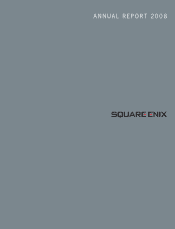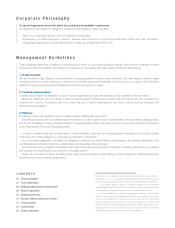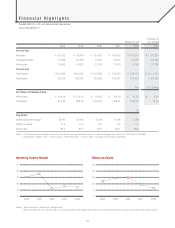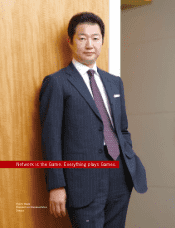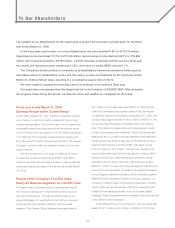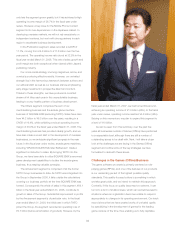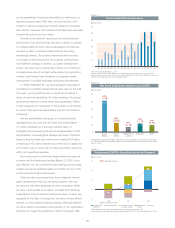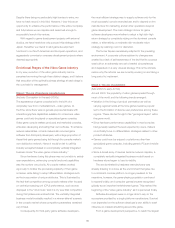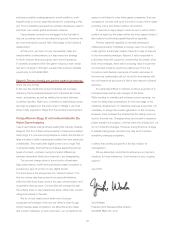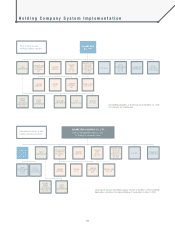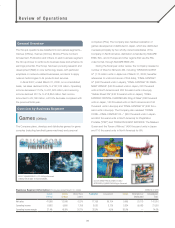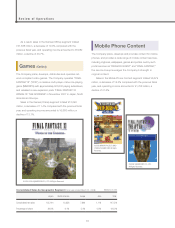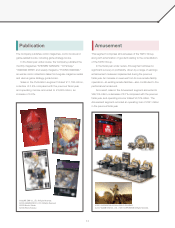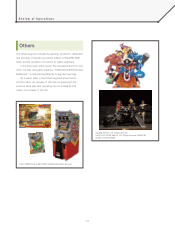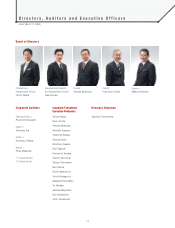Square Enix 2008 Annual Report Download - page 7
Download and view the complete annual report
Please find page 7 of the 2008 Square Enix annual report below. You can navigate through the pages in the report by either clicking on the pages listed below, or by using the keyword search tool below to find specific information within the annual report.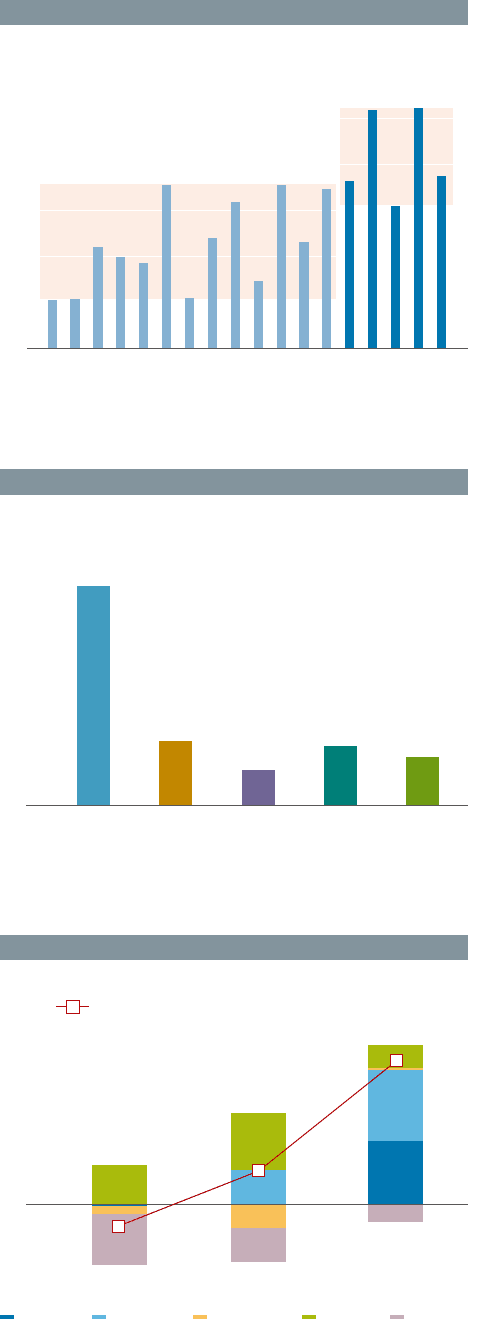
Billions of Yen
Consolidated Recurring Income
30
25
20
15
10
5
0
91 92 93 94 95 96 97 98 99 00 01 02 03 04 05 06 07 08
Billions of Yen
Net Sales by Business Segment and CAGR
50
40
30
20
10
0
Games
(Offline)
Games
(Online)
Mobile Phone
Content
Publication Others
41.6
12.1
6.6
11.2 9.0
CAGR
16.4%
CAGR
11.7%
CAGR
31.1%
CAGR
23.8%
CAGR
-1.9%
Billions of Yen
Amusement (TAITO): Operating Income by Segment
6
4
2
0
-2
06 07 08
TAITO Corporation was made a consolidated subsidiary at the end of September 2005.
Figures shown are prior to deduction of amortization of goodwill. 2008 = Fiscal year ended March 31, 2008
Arcade facility
operations
Arcade machines Software for home
use game consoles
Mobile phone
content
Others
(October 2005–March 2006)
Operating Income
(Figure 1)
(Figure 2)
(Figure 3)
2008 = Fiscal year ended March 31, 2008
Until 2003, figures shown are the simple sum of the two premerger companies’ results. For 1991–1993,
results for the former Square Co., Ltd., are on a non-consolidated basis. For 1991 and 1996–2001, results for
the former Enix Corporation are on a non-consolidated basis.
Compound Annual Growth Rate (CAGR)= CAGR of net sales over the period from the fiscal year ended March
31, 2003 (the simple sum of premerger companies’ results immediately prior to merger) to fiscal year ended
March 31, 2008
on the capabilities of that particular platform. Furthermore, to
efficiently develop major RPG titles, we were the first in the
industry to adopt a development system based on functional
labor division. However, the success of this approach eventually
became the yoke around our necks.
Diversity is the keyword describing the current business
environment. First and foremost, we have to deliver our games
on multiple platforms and in various languages. Furthermore,
we have to cater to consumer tastes that are becoming
increasingly diverse. Our previous experience with focusing
on a single console has slowed our progress constructing a
multi-platform strategy. In addition, our game development
system has become too segmented to allow us to maintain a
comprehensive view of a project while preserving organization
mobility. Such factors have hindered our progress toward
development in multiple languages and genre diversification.
In “FINAL FANTASY XI,” we have achieved multi-platform,
simultaneous worldwide release almost every year for the past
four years, proving that there are no significant problems in
terms of technical capabilities. As I have explained, the issues
are primarily related to culture rather than capabilities. Failure
to fully recognize the importance of this problem is something
for which I take personal responsibility, and am committed to
remedying.
We are substantially revamping our formerly pursued
management policy, and from the fiscal year ended March
31, 2008, embarked on a thorough transformation of
strategies. Accompanying this was the implementation of the
reorganization of several game development lines. This led to
losses during the fiscal year under review totaling ¥4.8 billion,
comprising a ¥3.0 billion valuation loss within cost of sales and
a ¥1.8 billion loss on write-offs of content production accounts
within non-operating expenses.
My honest opinion is that this transformation process will
continue until the fiscal period ending March 31, 2009, to be
fully effective, but I am confident we are making solid progress.
I believe we can successfully regain our position as one of the
world’s preeminent game developers.
There are also issues apart from those related to internal
game development. Although we are a publisher, until now
we have not sold titles developed by other companies. While
we have a strong sales force Japan, our sales and marketing
organizations in North America and Europe have not been fully
equipped for this task. Consequently, we have not been able to
embark on a truly global publishing strategy. Although belated,
we have recently completed a reinforcement of our organization,
allowing us to begin the publishing of other companies’ titles.
05

